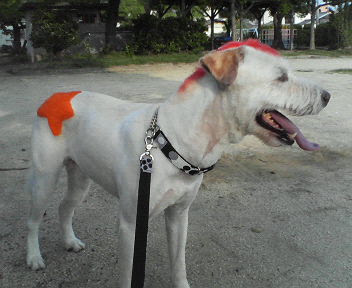I am sorry that it has been such a long time since I've given you advice. The truth is that I was diagnosed with cancer (がんと診断された) earlier this year and died yesterday morning. I was 15 years old. According to the vet (獣医さんによると), I was 93 in human years. I have asked Alan to write this final blog entry for me. In it I want to teach you some words and phrases related to death.
- Chibi died on May 22nd. (ちびチャンは5月22日に死にました。)
- Chibi passed away on May 22nd. (ちびチャンは5月22日に亡くなりました。)
- His family held a wake for him last night. (昨夜、家族が彼の通夜を行いました。)
- His funeral was held today. (彼の葬式は今日行われました。)
- He was cremated. (彼は火葬されました。)
It was a pleasure teaching you English for the past several years. Take care and good luck with your future studies. I have to go now, my brother Maru-chan is calling me . . .
From Heaven with Love,
Chibi





















